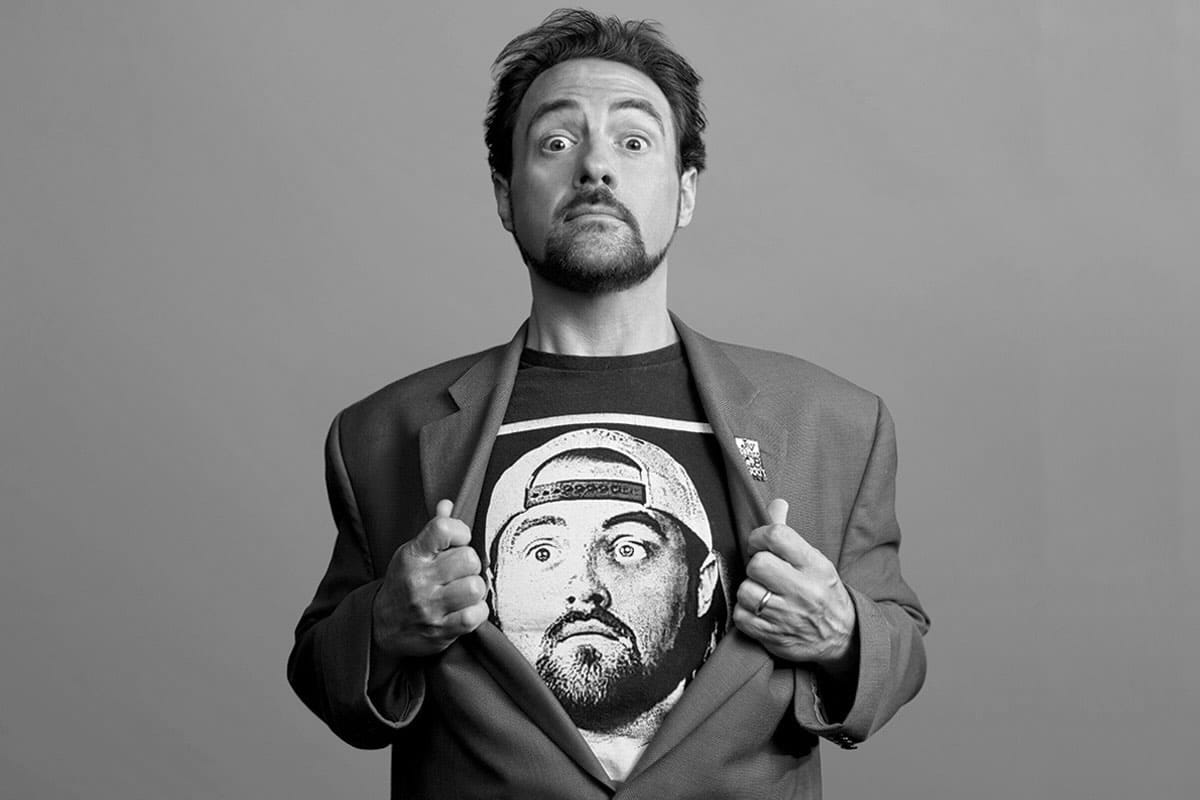You can't make a movie about faith without sincerity. You can make one about religion, though. They are separate things. Most of them are terrible, too. Yet good films about the act of faith and the complexity of belief are few and far between.
It's because of sincerity that 25 years after its original release, Kevin Smith's Dogma, rubber poop monsters and horny stoners included, remains one of the best films about the act of worship in modern America.
This is a curious and inquisitive film that doesn't pretend to have answers about the great beyond. Sure, it establishes loose rules and an expanded mythology that toys with Catholicism more than a little. But in the end, when it comes to the big finale, it is unassuming and open-minded about everything it doesn't know. In its own way, Dogma is a reverent film posturing as a smartass.
Our hero, Bethany (Linda Fiorentino), works at an abortion clinic. She attends church every Sunday, but has lost her faith in an establishment that once gave her hope. Years earlier, she had a miscarriage, and that loss killed her belief in something greater. One day, she is approached by Metatron (Alan Rickman), the voice of God, who informs Bethany she is to take a quest to prevent two angels, Bartleby (Ben Affleck) and Loki (Matt Damon), from re-entering heaven through a loophole in Catholic Dogma.
The concept is as clever now as it was a quarter century ago. Each religion calls itself the accurate representation of God's will on Earth. Only problem is that all contracts and stipulations are rife with contradictions. Just try to read any Terms and Conditions agreement. A loophole would prove God as fallible, thus negating all of existence. For anyone who has ever studied theology or held late night arguments over the definitive nature of faith, Dogma is as rich with subtext and what-ifs as any religious class or tome.
Smith wastes no time taking Bethany's quest on the road. She meets two unlikely prophets, Jay (Jason Mewes) and Silent Bob (Smith), who agree to accompany her on the journey. They're joined by Rufus (Chris Rock), the 13th apostle, and Serendipity (Salma Hayek), the personification of the muse. Behind the scenes, Azrael (Jason Lee), a disgruntled demon also cast out of heaven, works to ensure the erasure of all creation.
The journey itself is as wild as it is mundane. This is not the ancient world of mythic locations and forgotten mysteries. Instead, we're in the outskirts of Jersey and Illinois, where the most common places of worship are fast food and strip clubs. Smith's screenplay, which arguably still his wildest and imaginative this side of Masters of the Universe, treats all of it with equal parts reverence and gentle ribbing.
All religious films have a tendency to be gaudy and operatic. Dogma plays up that element with an understanding that, like all other Smith movies, this isn't the real world. It's the Askviewniverse, Smith's own created existence. As such, certain rules need not apply. One of my favorite little details is that after Dogma, foul-mouthed Jay always refers to God as "Her".
For a movie from the late 90s, it's lovely to see how well Dogma has aged. Anything that takes shots at religion is already on unstable ground; let alone a film that features a gag about picking up women at an abortion clinic. Jay is, by design, a tiresome creature at times, but he's also an honest one. I wouldn't be surprised if everyone had a Jay in their life at one point or another. It's Smith's greatest talent as a storyteller. He takes what's real and heightens it for the big screen. Even when the result is outrageous, we can point to it and go: "I know exactly how that feels."
Since Dogma was released, Smith and the world have both changed dramatically. When I spoke to him at Cannes, Smith said he couldn't make the same film today because he doesn't have the same faith as he once did. Instead, he's working on a sequel of sorts, one that could address his inability to believe as he once did.

The last time he was this vulnerable about his faith, Smith created the underappreciated Red State, an angry depiction about the perversion of faith. With any luck, Dogma 2, or whatever it will be called, will allow him to be tap into that emotional well again. It's clear he still has a lot on his mind, whether it's about the act of belief, the systems built around it, or simply who we want in our corner for whatever little time we have on this Earth.
For now, seeing Dogma on the big screen is like revisiting an old conversation you had with a friend decades ago. Neither of you are the same people, yet the connection remains the same because it comes from a place of love and sincerity. Few films accomplish that even once, let alone twice.










